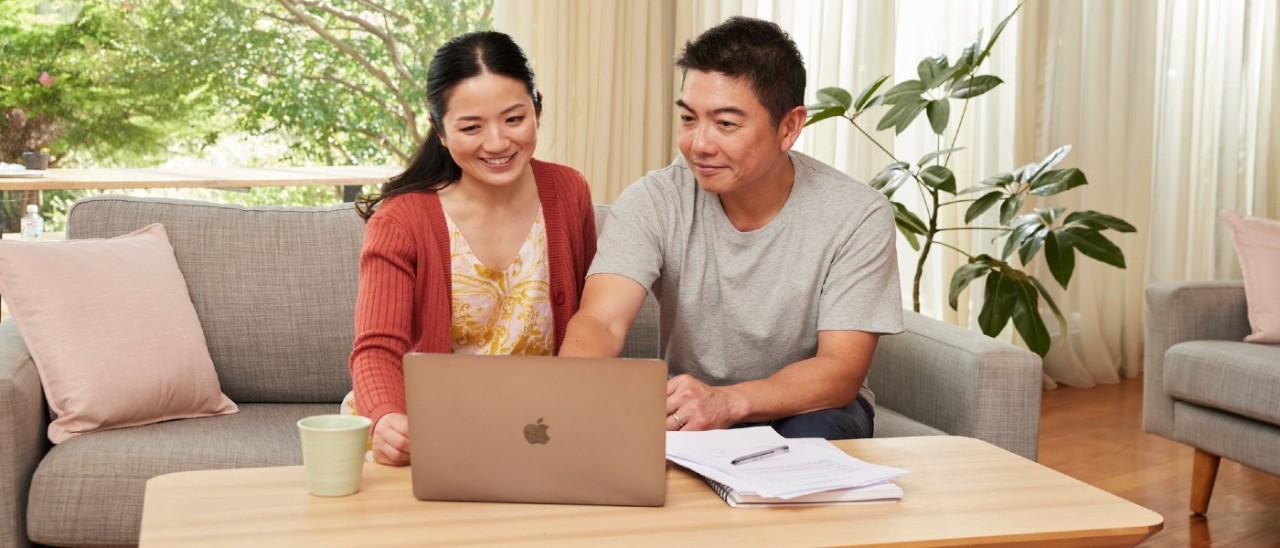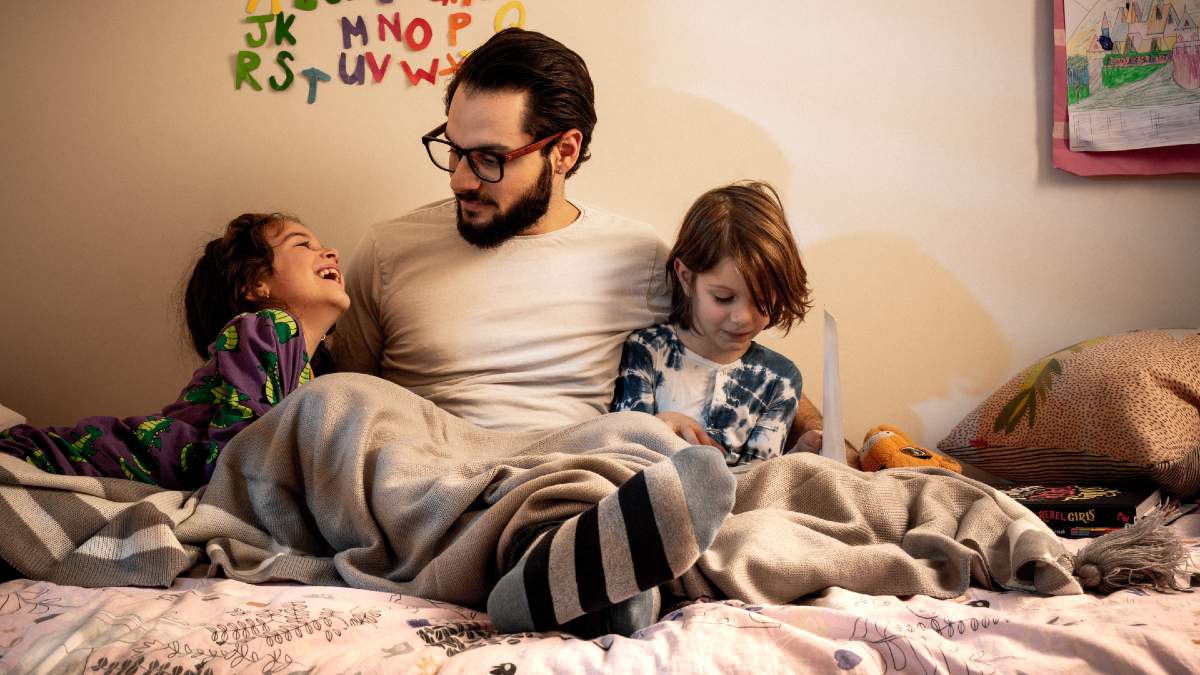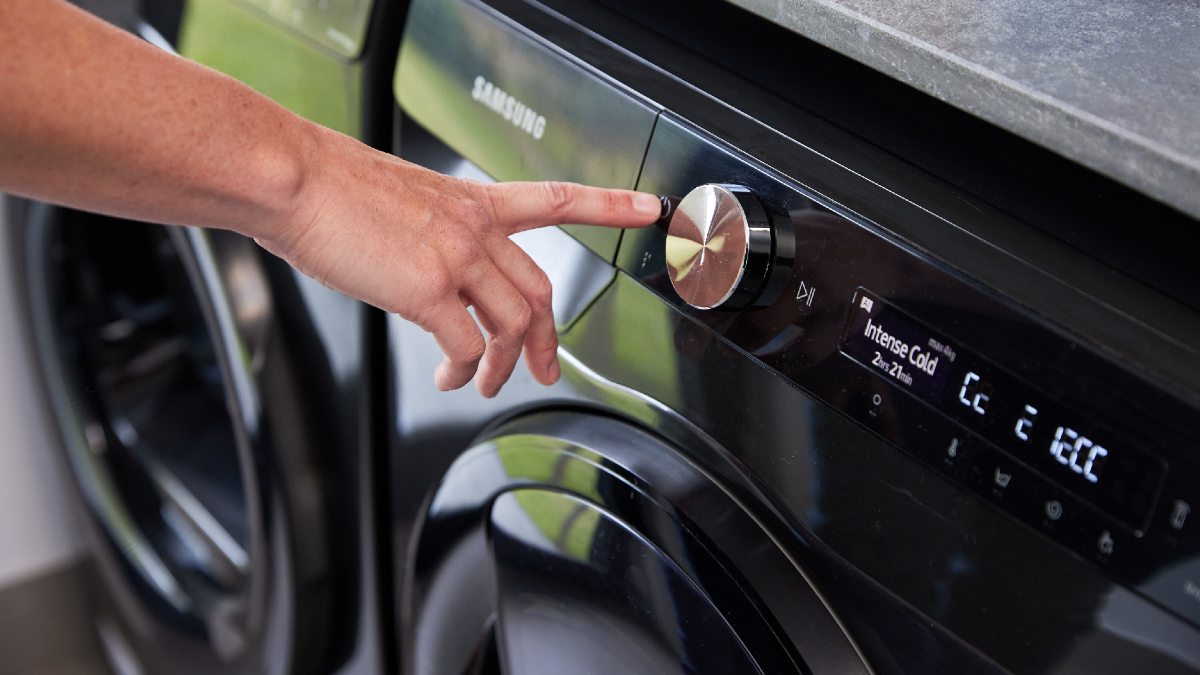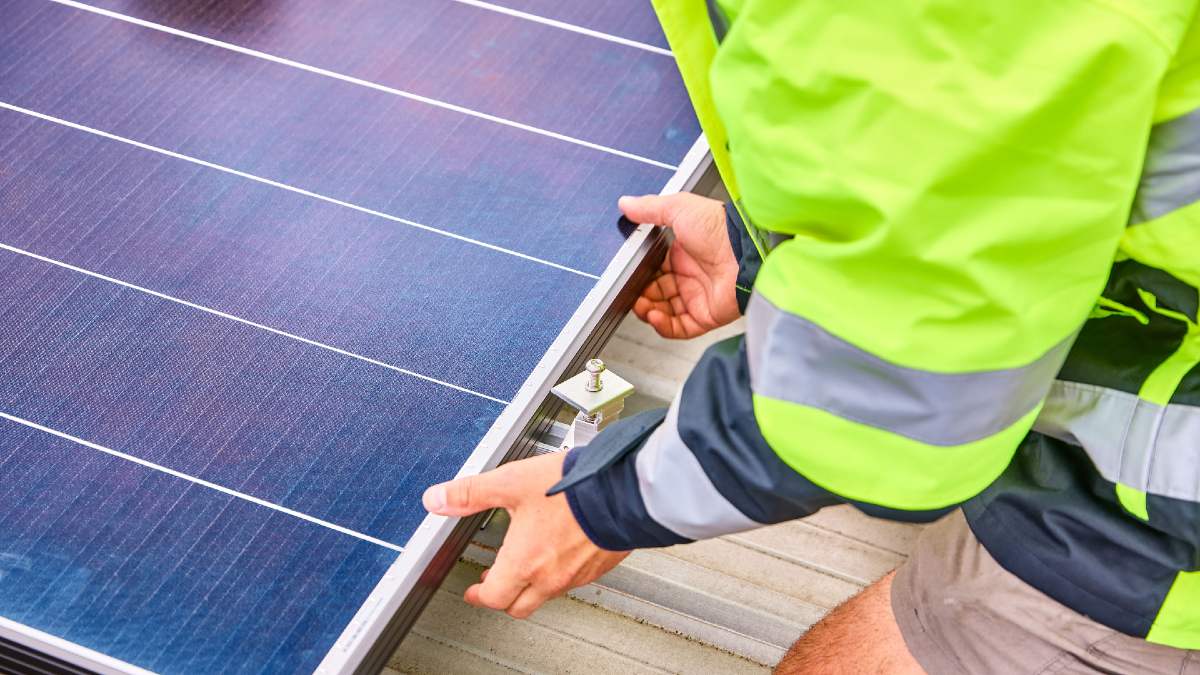Learn how Victorian households can reduce their bills and save money by installing smart home devices like lightbulbs, sprinklers and thermostats.
How to save money on energy bills when renting

Use these energy saving tips to help reduce electricity consumption (and your bills) when renting a house or apartment.
When you’re renting, you may not have the choice to install a solar panel system, switch to an induction cooktop or choose a heat pump hot water system to improve your household’s energy efficiency. However, there are still plenty of ways to increase efficiency and reduce your energy bills.
“There are some simple, low-tech and low-cost ways to increase your energy efficiency when renting,” says RACV Head of Trades Kieran Davies, who rented for five years in Melbourne.
In Victoria, rental providers (landlords) must make sure a property meets minimum standards on or before the day a renter moves in. These minimum standards include heating and window coverings, which can impact your home energy usage.
Renters are also allowed to make reasonable changes to their rental property to ensure they're not too hot or too cold, or to reduce energy or water bills. These changes require the permission of the rental provider. However, the rental provider cannot refuse such changes without a good reason.
Energy saving tips for renters:
How to make your home energy efficient as a renter
Heating
All rental properties in Victoria must have a fixed, energy efficient heater located in the main living space that is in good working order. Maximising the effectiveness of your heater can help keep your home warm and minimise your energy usage.
Up to 50 per cent of your household’s energy use goes towards heating and cooling, according to the Australian Government’s Department of Climate Change, Energy, the Environment and Water (DCCEEW). As you can imagine, decreasing your heating/cooling costs will dramatically reduce your energy bill.
If your rental property has a reverse-cycle air conditioner (aka a split-system) set the temperature between 18°C and 20°C in winter. Every degree hotter may increase energy use by 5 to 10 per cent. Close all windows and shut doors to rooms that you aren’t using for maximum efficiency.
It is a minimum rental standard in Victoria that rental properties have curtains or blinds installed in the living and bedroom areas that can close, block light and provide privacy. Closing your blinds or curtains before nightfall will improve insulation by trapping a layer of air next to the window. Keeping them open during the day will let the sun and warmth inside. If your rental has tile, wood, laminate or other non-carpeted flooring, laying down rugs can also help insulate your home.
One of the easiest ways to lose heat in the home is from the gaps under your doors or around your windows. Davies recommends working out where you’re losing heat from your house by using your hands: “walk around, place your hand near your doors and windows, and feel whether there is airflow sucking warm air out or letting cold air in.” Use a draught stopper (‘door snake’) to prevent air leakage under doors, and draught-seal any gaps or cracks around doors, windows, skirting boards, skylights and cornices. Draughtproofing measures like weather seals and caulking gaps are considered reasonable changes - renters are required to ask the rental provider's permission to carry out these changes but the rental provider cannot refuse without a good reason.
You can also ‘zone off’ parts of your house to mitigate warm air loss in open plan homes or down hallways. If your living room leads to hallways or other open doorways, grab a telescopic curtain pole from a hardware shop and close off the space with curtains that don’t need to be permanently fixed in place. “Restricting airflow like this totally changes the ambient temperature in your now-smaller space,” Davies says.
During the night, try sleeping with an extra blanket, hot water bottle, heat pack or even an electric blanket rather than the air con or space heater. Electric blankets only cost about four cents an hour, while space heaters cost around 15 cents an hour.
More: How to stay warm this winter and save money on heating

Using an extra blanket, hot water bottle or laying down thick rugs can all help keep you stay warm without turning on the heater.
Cooling
In summer, open windows during cooler parts of the day to let breezes in and hot air out. During the hottest part of the day, close your window’s blinds or curtains to prevent the sun from overheating your rooms. “Having some kind of shade covering in front of your windows can make a massive difference to how hot your house actually gets," Davies says.
If available, use ceiling or pedestal fans instead of the air conditioning to circulate air. Fans only cost about two cents an hour to run and can reduce temperatures by two or three degrees. If you use a split-system, set the temperature between 23°C and 26°C in summer. You can also ask your landlord for an air conditioner service to keep your unit running as efficiently as possible.
If your rental doesn’t have fans or an air conditioning (they're not required to in Victoria), Davies suggests trying a ‘reverse heat pack’. “When it’s really hot overnight, take an ice pack, wrap it in a tea towel, and take it to bed with you to help you cool down and sleep.”
Lighting
Lighting your home accounts for about 10 per cent of your energy bill, according to DCCEEW. To save on lighting costs, get into the habit of turning off lights in unused rooms. “Plus, make sure you have the cheapest running globes in place,” Davies recommends.
LEDs are easily the most energy efficient lightbulb, and use 75-85 per cent less electricity than incandescent bulbs for the same light output. Use LED globes in your desk, bedside and floor lamps. If any of your ceiling lights blow out during your tenancy, replace them with LED globes too.

Washing your clothes in cold water uses less energy and keeps your clothes looking their best for longer.
Appliances
DCCEEW reports that appliances account for about 25 per cent of your home energy use. There are some appliances that you aren’t in control of in rental properties, such as the water heater, air conditioner, pool pump, dishwasher, and sometimes the clothes dryer. But renters do usually supply their own refrigerator and freezer, clothes washing machine, and entertainment devices like televisions, gaming consoles, and computer monitors.
When you next need to purchase one of these appliances, look carefully at their labelled energy star ratings and buy the most efficient model that you can afford. It may be slightly more expensive to purchase, but it will save you money in the long run.
In addition, you can learn which appliances consme electricity even in standby or shut down mode and make sure to turn off the power switch at the wall to eliminate energy waste.
To save extra money on your electricity bill, try:
Waiting to use your washing machine and dishwasher until you have full loads
Using the cold wash cycle on your washing machine – you can save 50 per cent of energy costs by doing this using a front loader, or 85 per cent using a top loader. Washing in cold water can also help clothes last longer without wearing out or fading.
Hanging your clean laundry on a clothesline or indoor clotheshorse rather than using a clothes dryer – doing this just one day a week can save you up to $70 a year.
Setting your fridge and freezer temperatures properly: between 3 to 5°C for a fridge and -15 to -18°C for a freezer – every degree lower will use five per cent more energy.
Boiling the kettle once and pouring the hot water into a thermos so it retains heat throughout the day. “That way you don’t have to keep boiling the kettle, which consumes energy each time,” Davies says.
- Switching to a portable single-burner induction cooktop – there are now a few options on the market that are efficient, affordable, and can reduce your energy needs.
- Purchasing an air fryer, which can save you up to 34 cents per kWh when cooking food compared to a conventional oven.

Renters can speak to their rental provider about installing solar panels, with financial incentives available.
Can switching suppliers reduce my energy bills?
In Victoria, rental providers are responsible for having electricity and gas services installed and connected to their rental properties.
Renters are responsible for having these utilities re-connected in their name and for paying all supply and usage costs, as long as the rental property is separately metered. If the property is not separately metered, the rental provider is responsible for these costs.
If you’re able to choose your own energy supplier, shop around for the best rates to ensure that you are paying a fair price on your electricity bill. Review your bills regularly to see if a better deal is available - using a website like Victorian Energy Compare can make finding the best supplier for you easier.
Search for features like fast set-up, waived connection fees and no lock-in contracts. Arcline by RACV gives you reliable, cleaner energy for a fixed wholesale rate.
Can renters install solar panels?
Solar Victoria offers incentives for rental providers to install solar panels on their rental properties as part of the Solar Homes Program. This includes rebates of up to $1,400 for the installation of solar panels on up to two rental properties per financial year. Rental providers can additionally apply for an interest-free loan to match their rebate amount. Renters can co-contribute to the repayment of this interest-free loan, up to 50 per cent of the monthly repayment cost (roughly $14.58 per month based on a loan of $1,400).
Installing solar panels at a rental can improve the value of property and make it more enticing to renters.
If you're a renter, you can raise the idea of solar panels with your rental provider or property manager. Solar Victoria provides more information for renters on this process, including an email template that renters can send to their property manager or rental provider.
RACV Trades is a trading name of RACV's trade partner, Club Home Response Pty Ltd (Victorian registered domestic building practitioner number CDB-U 100178). All works are performed or arranged by Club Home Response Pty Ltd. trading as RACV Trades. Read the RACV Trades Terms and Conditions.


